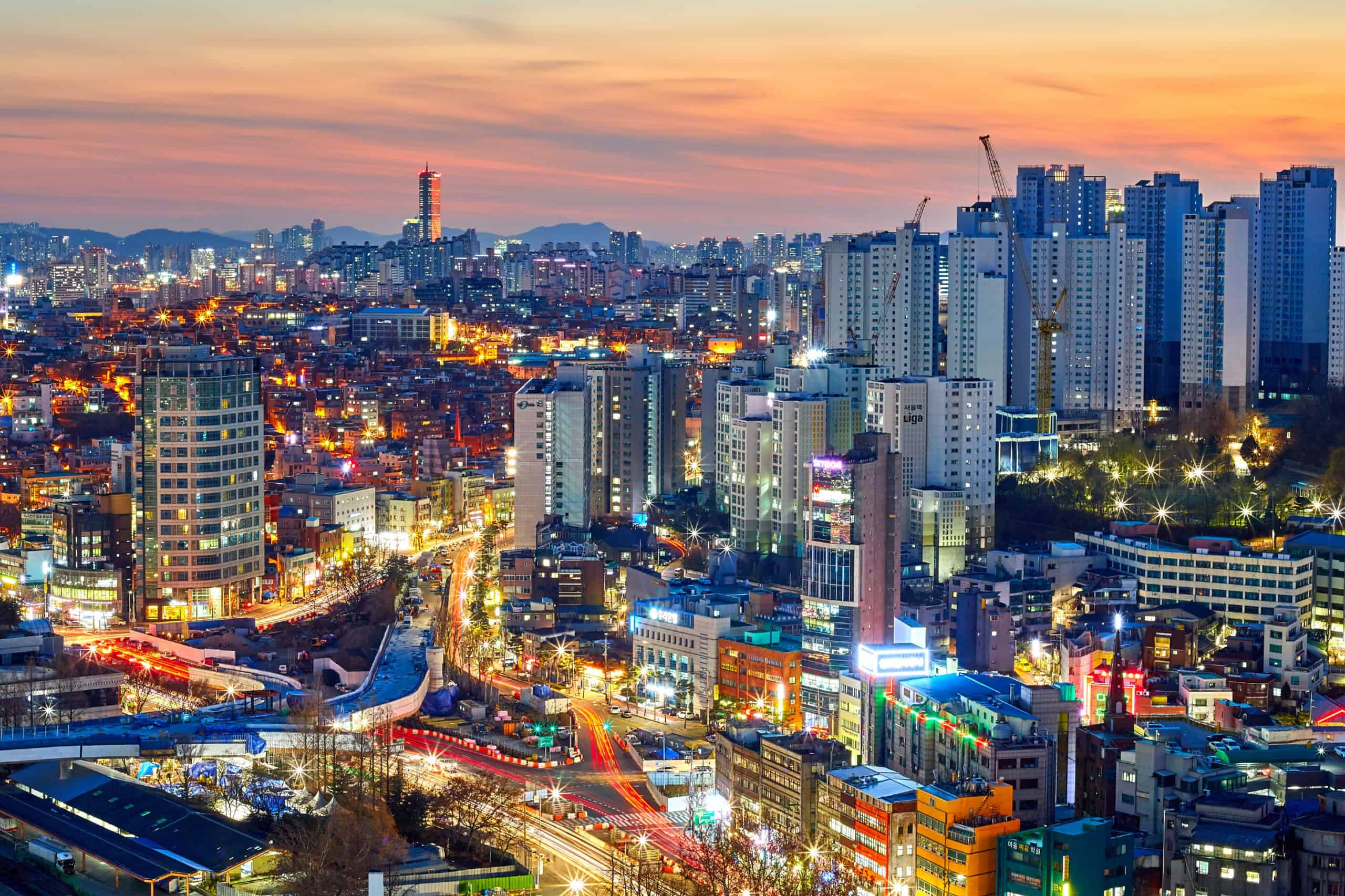Have you ever been lost in the middle of a new city, utterly embarrassed at your unexpected lack of navigation skills, and too scared to ask for help? Now, let’s take it up a notch. Have you ever experienced this in a foreign country where you don’t speak the native language?
Traveling to Asia is an extremely exciting and rewarding experience, yet the most common factor that holds people back is the fear of not being able to speak the host language.
I’ve lived and traveled in Asia for extended periods of time and have visited countries where I am not fluent in the host language. In my experience, certain nations in Asia are a bit more accessible for English speakers to visit than others. In my personal experience, the 3 best Asian countries to visit for English speakers include South Korea, Vietnam, and Taiwan.
*Note: Only nations that do not include English as an official language are included in this list.
What Makes a Country Better to Visit for English Speakers Than Others?
As many of us know, you cannot visit a non-English speaking country and expect to be able to utilize English to the extent that you do at home. You may believe that because English is a world language, you can get by using English anywhere. While this passes in some cases, it is vital not to rely on this.
You, as an international traveler, must research whether or not the existing government of the country you are traveling to has made an effort to make tourism easier on foreign guests. They do this by ensuring that certain aspects of travel there are accessible to visitors who don’t speak the host language.
This way, if you encounter complications, you can make sure you can find your way out of them using other resources. Here are some of the things a country can have that makes traveling as an English speaker more accessible:
- English as a second language in public education
- Uncomplicated public transportation systems with multilingual announcements
- Multilingual signs at tourist destinations
- Availability of English translations on menus
- Electronic accessibility (check out this all-in-one worldwide plug adapter for convenience. I swear by these for overseas travel)
Now that we’re familiar with some of the factors that will make traveling in Asia easier for English speakers, let’s dive into what makes each of these countries a wonderful place to visit, even if you aren’t fluent in the host language.
South Korea Is a Haven for International Tourism

With the most developed ICT infrastructures, booming entertainment industry, modern cities, and clean transportation systems, the Republic of Korea (more commonly known as South Korea) is a destination anyone would put on their travel bucket list.
Thanks to the growing “Korean Wave,” a word used to represent the increase in global consumption of Korean media like K-Pop and K-Dramas, South Korea’s level of international tourists grows bigger and bigger every year. But is this attraction powerhouse a good destination for someone who does not speak native Korean?
I’ve traveled to South Korea on different occasions. I can say from experience it is one of the best destinations for English-speaking tourists. South Korea, especially Seoul, is a fantastic place for English speakers to visit for a variety of reasons.
English Education Is Mandatory in Public Schools
The South Korean government requires that all students in public schools learn English as a second language. They learn English from primary school all the way through high school graduation, and English is one of the main topics on the college entrance exam.
Some criticism exists regarding the effectiveness of the South Korean English language curriculum in cultivating conversational speakers, but nevertheless, you can usually expect younger South Korean people to understand and speak basic English. This is not always the case with older generations.
Regardless, it can be helpful to carry language dictionaries as a back-up. If you really want to look like a pro, check out this Korean-English dictionary.
Public Transportation Is Easy to Use
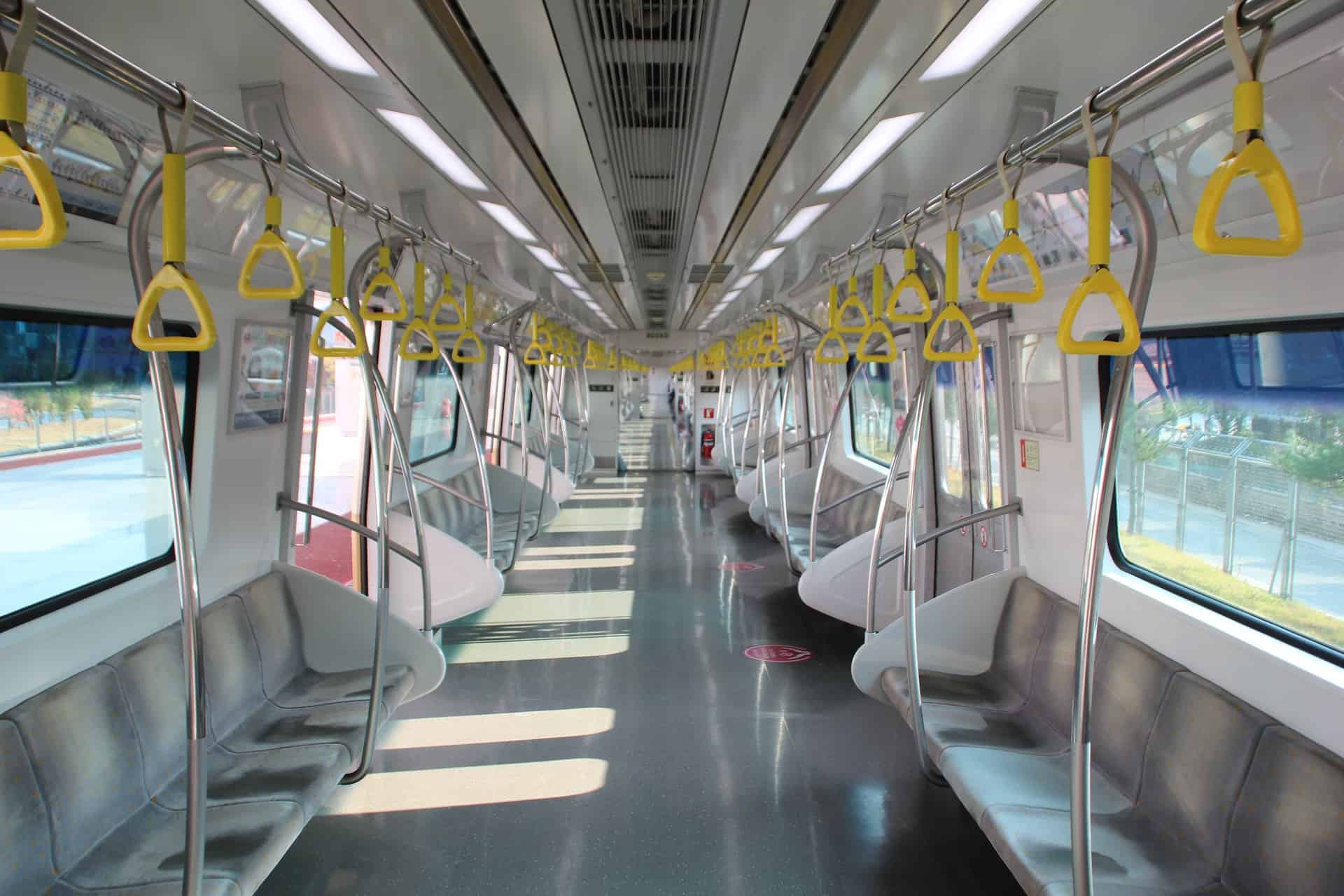
When traveling abroad, approaching the public transportation system can be the single most daunting task you tackle on your trip. Rest easy, however, South Korea has one of the most well-organized and easiest public transportation systems in the world.
- South Korean taxis are plentiful and cheap. The average taxi driver is used to interacting with foreigners. However, the Seoul metro system can transport you virtually anywhere in the city for even cheaper. You can also take buses and trains to other parts of the country, including a high-speed rail to Busan.
- Navigate South Korea in English through the free app ‘Naver Maps.’ It gives you real-time updates on the status of buses and trains, as well as directions on how to transfer. Google Maps does not work very well in South Korea.
- There are maps of the Seoul metro inside each station. These maps have translations into English and Chinese. On both buses and trains, all stops are announced in Korean and English (and occasionally in Chinese and Japanese).
When my family came to visit me in Seoul, they were able to find their way around the city with ease, despite speaking no Korean.
There are all kinds of helpful videos online with step-by-step explanations of how to use public transportation systems worldwide. The video below was made by a veteran English teacher in South Korea who thoroughly explains how to use the Seoul subway system.
English Translations at Tourist Destinations Abounds
Heading to Gyeongbok-gung palace and worried you might not be able to figure out how to purchase your ticket? Or do you want to visit Namsan Mountain, but worried about whether or not you can communicate that you’d like to ride the cable car?
At every tourist attraction in the country, South Korea has informative signs and assistance in Korean, English, and Chinese. They often hire Korean-English, Korean-Chinese, or Korean-Japanese bilingual employees to cater to international travelers.
If that’s not enough, the South Korean government also hires ‘tourist guides’ to help out confused foreigners on some of the busiest streets (as funny as that sounds). This is part of the ‘Mobile Tourist Information Service.’ They wear bright red, so it’s easy to spot them. They carry all kinds of helpful brochures and maps to point foreigners in the right direction.
English Menu Translations Are Prevalent in South Korea
In Seoul, you can be sure to find menus with both photos and English translations in the majority of restaurants. You will also find that most employees can communicate using basic English. This is also the case in many other major South Korean destinations, like Busan or Jeju Island.
It is not as likely to find this kind of reliability in more remote countryside regions, however.
Electronic Accessibility Can Be Found Most Places
- Available Wifi: As the world’s ICT powerhouse, you can rest assured that you will have access to internet services. South Korea has the world’s fastest wifi, and almost every bar and restaurant in the capital has its own wifi network you can connect to.
Depending on the nature of your trip, if you have a plan with a network provider there, you can even connect to Seoul’s city-wide wifi system. It allows for wifi access on subways or even when you’re just walking down the street.
- SIM Cards: If you’re worried about having no internet, you can easily purchase a prepaid SIM card at a KT store at the airport or anywhere in the city. Employees are very used to assisting international travelers with this kind of service. If you want to purchase one beforehand, however, you can find one here.
- Portable Wifi: You can also rent something called ‘egg wifi’. This is a portable wifi device that allows you to stay connected wherever you go without using up any data. You can usually find these at the airport or in different tourist hotspots in Seoul.
South Korea goes above and beyond to ensure that their foreign visitors have a comfortable, convenient experience in their country. Next, we’ll see how Vietnam provides the peace of mind of their English-speaking visitors, too.
Vietnam is Worth a Visit for Its Unique Culture and Beauty

Vietnam (AKA the Socialist Republic of Vietnam) is a beautiful, extremely unique country in Southeast Asia. It has a long history of occupation by Western powers (namely France and the US), and the remains of these cultural intricacies exist even today.
Much of the architecture is leftover from the French colonial period, creating a blend of Vietnamese and French aesthetics. Much of Vietnamese cuisine includes French influence as well (ex. the French baguette and Banh Mi).
Ho Chi Minh City (formerly Saigon) is a bustling modern metropolis, and Hanoi is a uniquely antique city with beautiful lakes and historic landmarks. In between the two is breathtaking countryside, with burning sunsets and vast rice paddies. Not to mention, it’s incredibly cheap to travel to, making it the perfect destination for those traveling on a budget.
I traveled to Vietnam myself. As an avid fan of Vietnam War movies, it had always been on my bucket list. But, I speak zero Vietnamese and was relying on English while I was there. In the end, I had one of the best travel experiences of my life, and here’s why:
English Education is Prevalent, But Not Mandatory Here
While English education is not pushed to the degree as in South Korea, it is taught, and Vietnam outranks other countries in Southeast Asia in general English proficiency. More than half of the Vietnamese population speak English.
Additionally, Vietnam is currently implementing an educational initiative to improve Vietnamese students’ proficiency in foreign languages, called ‘Project 2020.’ This program displays the dedication of Vietnam to cultivate multilingual citizens, and English is one of the most popular languages learned.
In Hanoi, almost every service worker I encountered spoke enough English for me to comfortably understand. When they didn’t speak English, we communicated effectively through body language or pointing at things. In my experience, the process of communicating without words did not seem foreign to the locals. Just about everyone seemed comfortable doing it.
If you wanted to go the extra mile and impress locals with your Vietnamese language skills, try this Vietnamese-English dictionary.
Public Transportation Is Best Done With This Phone App
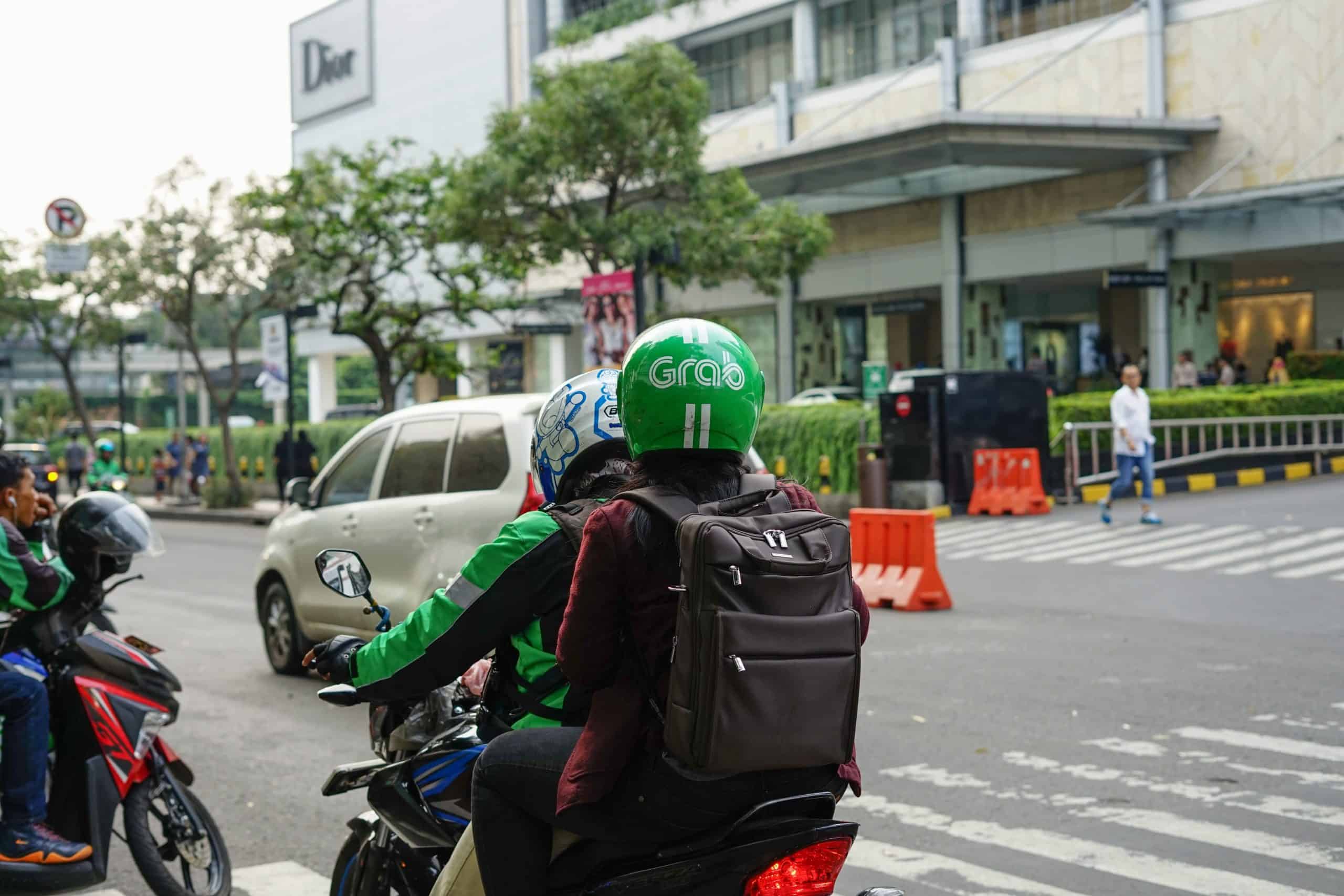
Vietnam has a national public transportation system, which includes buses, taxis/taxi bikes, and trains. This system is not entirely English-friendly, but thankfully most people travel around using the ‘Grab’ app.
The ‘Grab’ app is used to pick up rides to and from places. It operates similarly to ‘Uber.’ The app is very easy to use and has an English version, and ride prices on the app are quite cheap. You choose the route and price before the driver shows up, so communication isn’t necessarily required. This is how I get around when traveling arund Vietnam. You can even get a Grab bike and ride around on the back of a motorcycle!
Grab drivers wear their iconic green and white vests and helmets. But be aware, some drivers in Vietnam wear fake ‘Grab’ brand gear to try and offer rides to tourists on the streets at higher rates than the app provides.
Therefore, if you visit Vietnam, make sure you organize your ride through the app beforehand, verify the license plate number, and don’t take rides with anyone you did not book a trip with.
English Translations at Tourist Destinations
Vietnam has endless aesthetic and historical attractions for visitors. You can visit Hoa Lo prison, where John McCain was held as a prisoner. Or do you want to see Ngoc Son Temple? Maybe you are dying to see the famous Thang Long water puppet show?
Tourist destinations in Vietnam will always have signs in English available for tourists. The employees operating the ticket stands will know enough English to help you, and at the more popular destinations, there are usually employees available to help with questions or to direct tourists in the right direction.
English Menu Translations Are Easy to Spot
In the well-traversed areas of the country, English menu translations will be available. Famous street food joints always have an English menu ready, and photos are often included.
Vietnam has an incredibly vast street food culture, and oftentimes these are hole-in-the-wall type restaurants. Because of this, certain street food vendors may not have English menus if they are not traversed often by tourists; but you can usually tell by simply looking at the restaurant.
If the restaurant is foreigner-friendly, the signs will be written in English.
Another option for those who are worried about intercultural communication is Western-style restaurants. These are much pricier than, say, a bowl of pho at the street joint around the corner, but prices will still reflect average restaurant prices in the US.
I visited a few of these Western-style restaurants and often got serviced entirely in fluent English, and the general restaurant experience is very similar to that of the United States.
Electronic Accessibility Can Be Found in Most Areas for Cheap
Traveling in Vietnam is cheap, and this goes for the internet, too.
- Wifi Availability: While you may not find wifi to connect to when you buy street food, all major restaurants and cafes usually have free wifi for their customers.
- SIM Cards: When you step off the plane at the airport, there will be different internet providers offering prepaid SIM cards at different rates. Usually, buying SIM cards at the airport can be pretty expensive, but even these are cheap compared to what it would cost elsewhere.
You can get a prepaid SIM card for around $6.50-$15 USD depending on how long you’re staying in the country. If you don’t want to be bombarded with offers after a long trip, you can buy SIM cards online.
Vietnam is a wonderful destination for English-speaking visitors, thanks to their dedication to making traveling comfortable for their tourists. In tandem with how utterly cheap it is to travel there, Vietnam is a must for anyone looking to experience unparalleled natural and historic beauty.
Taiwan Boasts Incredible Food and Majestic Vistas

Up next on our list of the best Asian countries to visit for English speakers is the Republic of Taiwan. Similar to Vietnam, Taiwan has incredible natural beauty with mountains, beaches, and everything in between.
If you’re seeking a metropolitan experience, Taipei is a bustling haven full of opportunities for shopping, food, and tourist attractions. Taiwanese locals are also truly the sweetest, most helpful people you will likely ever meet.
Food culture in Taiwan is extremely prevalent and is so integral to the lives of the people and society.
Taiwan has some of the best dumplings the world has to offer (try soup dumplings or XiaoLongBao). So if you’re a self-proclaimed foodie, you’ll want to keep reading.
The official language of Taiwan is Mandarin Chinese, and a small portion of the population speaks native Taiwanese (Hokkien). Let’s dive into why despite this, Taiwan is the perfect place for English speakers to visit.
English Education Is Integral to Taiwan’s Succes
Similar to South Korea, Taiwan includes English as an integral part of the public school curriculum. It starts in elementary school (but many start as early as preschool) all the way through to graduation.
This emphasis on English education has only increased as the years have passed, so it is more likely that younger people will be able to speak a basic level of English, whereas older people may not.
Like Taipei, almost everyone will speak enough English to assist you if you are lost or have a question. However, this access to English is not as prolific in rural areas of the country, and it is likely that only younger people will know basic English.
If you would like to practice some Mandarin skills with locals during your trip to Taiwan, you can find a supplemental Mandarin-English dictionary here.
Public Transportation Is Always on Time
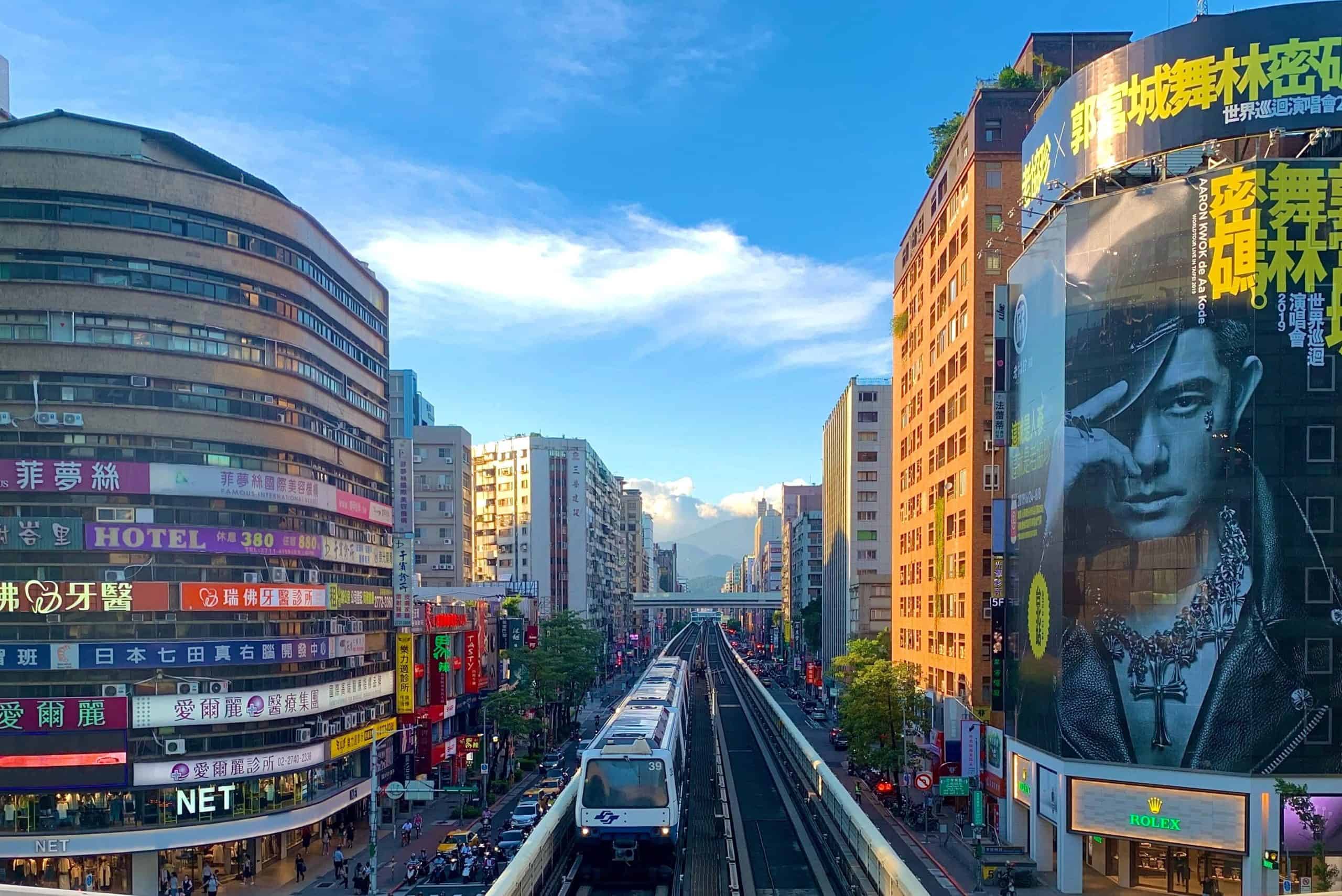
Taiwan’s public transportation network is reasonable, uncomplicated, and concise- just like South Korea’s. There’s a prolific bussing system, taxiing is cheap, and Taipei has its own sparkling clean metro that takes you anywhere you’d like to go in the city. You can also rest assured that your busses and trains will be on time, every time.
You can expect to have zero problems using public transportation systems anywhere in the country, especially in Taipei. But it’s recommended to have the address in Chinese written down if you are taking a taxi.
In all parts of Taiwan, there will be English announcements at all stops, and informative signs will be available in English as well. Google maps work well for getting around in Taiwan, but there are plenty of other bilingual bus or train apps (like 台北捷運go) that you can use for specific cities.
English Translations at Tourist Destinations
There are plenty of tourist destinations in Taiwan for travelers to visit. The Taipei 101 tower is a favorite attraction, where you can enjoy the highest elevation Starbucks in the world.
There are plenty of memorial halls for iconic historical figures, and night-markets offer a special street food experience for visitors. However, is it accessible for incoming travelers who don’t speak Mandarin?
In both Taipei and anywhere else in the country, tourist destinations are extremely well-outfitted with both English translations on informative signs and English speaking employees to assist with any inquiries or problems. This means you can soak in all the history and beauty and still have access to supplemental information from helpful employees.
English Menu Translations Are Common and so Are Picture Menus
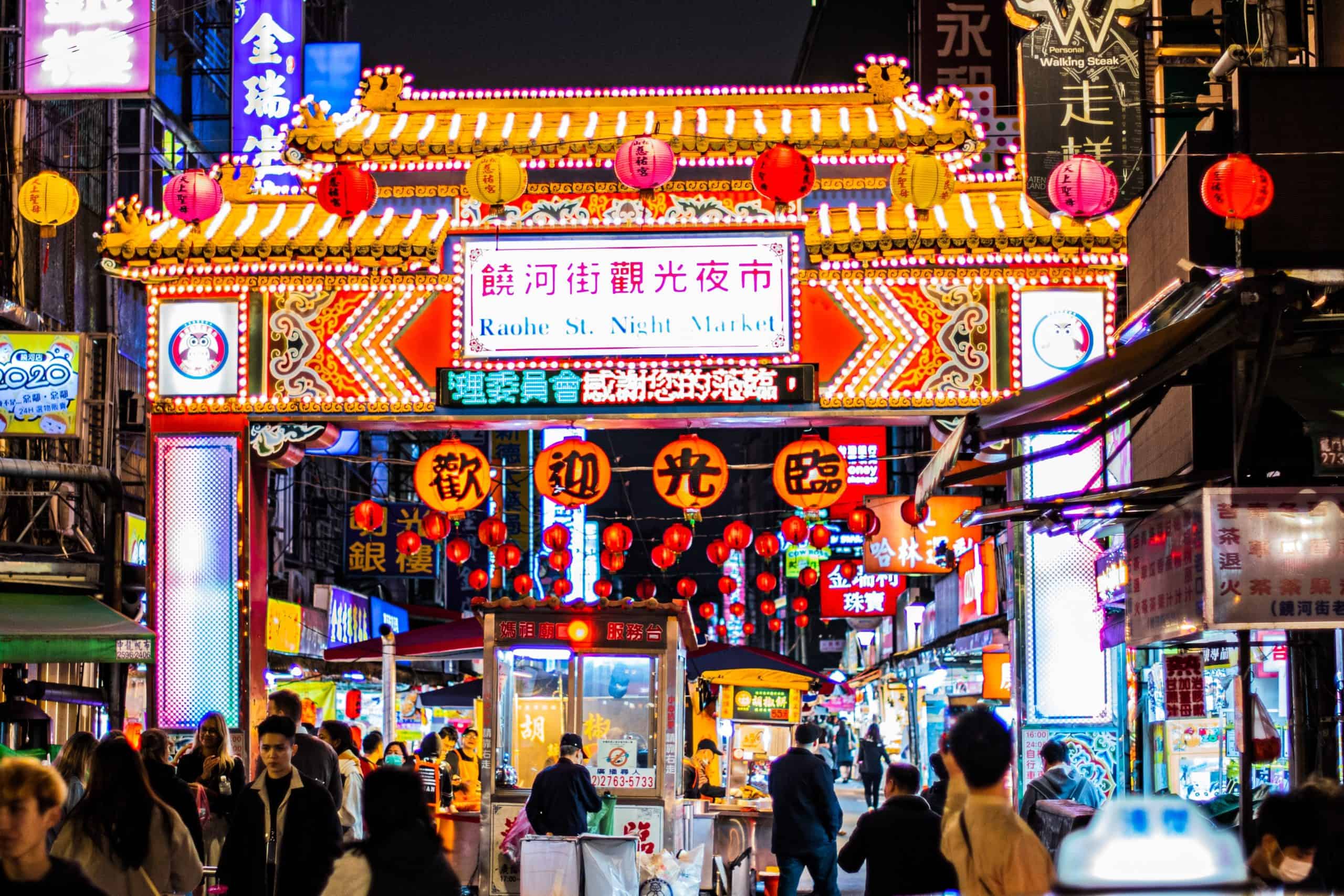
Given Taiwan’s food culture, there is no more important category than this. Thankfully, in Taipei, you can expect English menus and service to be available anywhere, so you can comfortably chow down on some of the most delicious street food you’ve ever had.
Outside of Taipei, all chains and major restaurants will have them as well. For small restaurants and stands, pictures of the menu are available and you will be able to simply point and pay.
Electronic Accessibility Is Found Here
Taiwan is another electronically-savvy nation, with the majority of citizens owning smart devices and computers. In fact, Taiwan and South Korea actually rival each other in regards to the average amount of time people spend online. Thanks to this, Taiwan has plenty of options for international travelers looking to stay connected abroad.
- Wifi Availability: Just like South Korea and Vietnam, you will have access to free wifi at major restaurants and cafes if you are a customer.
- SIM Card: There are many telecom providers in the airport from whom you can purchase a prepaid SIM card upon arrival. You can also buy a “pay-as-you-go” SIM card if you don’t want to commit to a certain level of gigabytes.
If you want to purchase a SIM card online to avoid waiting in lines, you can find one with unlimited data here.
- Portable Wifi: The ‘egg wifi’ popular in South Korea is also prevalent in Taiwan. You can even rent the portable wifi device online ahead of time, reducing stress during your time at the airport.
In Conclusion
South Korea, Vietnam, and Taiwan all exceed expectations in regards to accommodating English-speaking tourists. At each location, you will be able to find reliable access to English translations on menus and signs, simple and organized public transportation systems, proper internet access, and the occasional English-speaking local to strike up a conversation with.
Hopefully, reading this has helped alleviate some of your fears about traveling abroad and taught you that traveling in Asian countries as an English speaker is not as daunting as you may think.
They want you to come, and have made it comfortable and easy to do so! Once you beat the initial fear of culture shock, you can open the doors to one of the best experiences of your life. Bon voyage!

